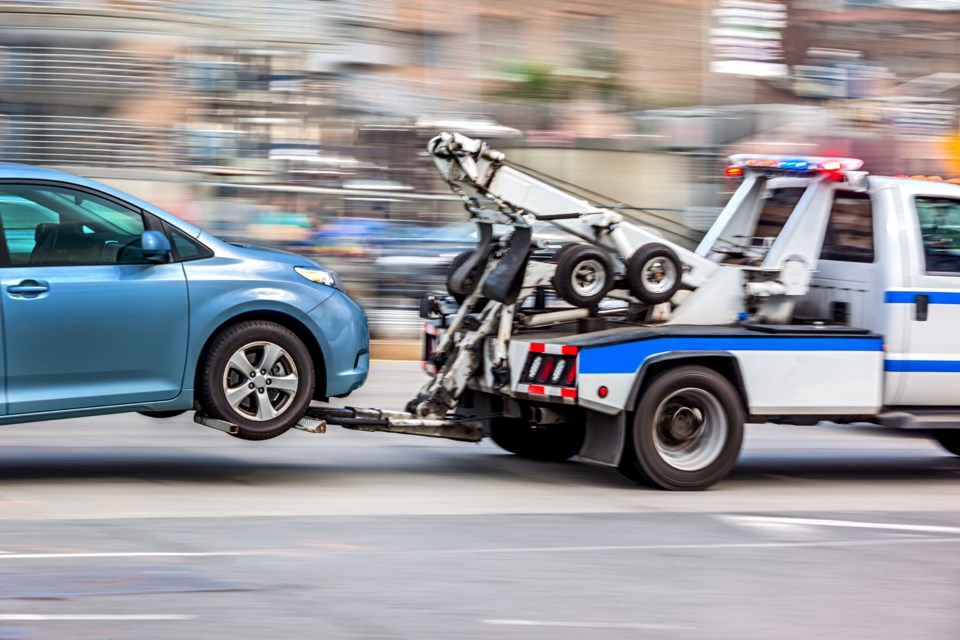Provincial police are implementing changes to their Ontario-wide tow program that affect how tow and storage service operators (TSSOs) apply to provide OPP-requested tow services beginning in 2023.
Among the changes, TSSOs are now required to complete their own electronic criminal record check, which includes an agency letter acknowledging the requirement. The links are available on the OPP provincial tow program website at opp.ca.
Sgt. Kerry Schmidt, who is with the OPP's Highway Safety Division, says the program is designed to make the towing industry safer for both operators and customers.
“If we’re going to call a tow truck on behalf of a member of the public, we want to know who they are, if they have the proper credentials and equipment and that we have a way of recourse in case there are any problems so we can follow up,” Schmidt said.
“We don’t want to take just anyone off the road with a winch on the back of their truck," he added.
The recent announcement was also a renewal of the program, alerting companies to get their paperwork in.
“The program (includes) one-year contracts, or one-year applications, and companies have until Oct. 15 to get their applications in,” Schmidt said. “That makes sure they will continue to be on the provincial towing program.”
For the OPP's provincial tow program — all areas outside the GTA tow zone pilot program scope — the existing practice of obtaining or dispatching a TSSO will remain the same as the current practice. However, only TSSOs that have been approved to be on a detachment's TSSO tow list will be dispatched for police-requested tows.
Craig Jones, who's a local supervisor with Classic Towing, which has offices in Barrie and around the province, says there is a need for such a program.
“This is a way to make it an even playing field. I believe all those companies that are in that tow zone area basically charge the same price,” Jones said.
Tow zones are designated to the OPP detachment in a specific geographic area.
At Classic Towing, which has around 15 to 20 trucks that serve Barrie and the surrounding area, Jones says his crews follow the rules.
“We follow the rules and regulations because if you don’t, the OPP will take off their call list. That would be a huge loss to our workers,” he said. “They (the OPP) are just trying to get rid of all the people who shouldn’t be towing. Throughout the years, customers have been getting ripped off, insurance companies have been getting ripped off, and this helps bring stability to the industry.”
Bob Havershun was a tow-truck operator for many years, including what he called “the wild west of the '70’s and '80s.”
Havershun retired about 12 years ago, but still follows the industry closely.
“It's way better now, way better. If I was a young upstart, I probably wouldn’t like it because I’d want to hammer down and get all the lifts I could, but this is better for everyone,” he said. “It was the wild west of the '70s and '80s that likely put this all into effect.
"There would be fights on the side of the road between drivers trying to get business," Havershun said.
Havershun said some of that behaviour still likely goes on, but not as bad as it used to thanks in part to regulations such as the OPP's tow program.
“Sometimes you’d be the first driver to pull up to a scene and while you’re talking to the driver, the next tow operator would come and take the keys out of your truck and throw them in the grass,” he said. “That happened to me in the past.”



